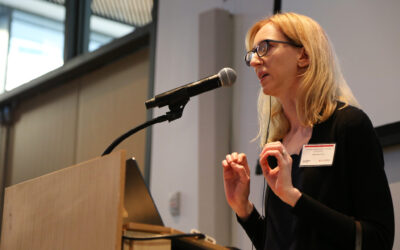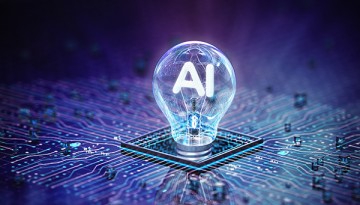Thomas Ristenpart, professor of computer science at Cornell Tech and the Cornell Ann S. Bowers College of Computing and Information Science, has received the Association for Computing Machinery Conference on Computer and Communications Security (ACM CCS) Test of Time Award for his influential 2015 paper on privacy risks in machine learning.
Cornell AI News
News Category
Filter by Topic
Doctoral student’s system eases patient-discharge process
Every day, millions of people are discharged after extended hospital stays, but matching these patients with appropriate care facilities can be arduous, often reliant on months-old, inaccurate data.
Now, a text message-based, hybrid computer-human system that regularly updates both patients’ and care facilities’ availability statuses, developed by a Cornell doctoral student, is smoothing that time-consuming process. The system was tested at a hospital in Hawaii for 14 months, beginning in early 2022, and helped place nearly 50 patients in care facilities.
AI-generated content a triple threat for Reddit moderators
Researchers at Cornell Tech and Cornell Bowers engaged directly with 15 content moderators on Reddit to see exactly how they try to preserve the news sharing site’s humanity in an increasingly AI-infused world.
Using AI to learn quantum complexity
Cornell physicists and computer scientists have developed a machine learning architecture inspired by the large language models (LLMs) behind ChatGPT to help them study the vastly complicated interactions that happen when nature’s smallest particles interact.
Cornell Tech Hosts First-Ever Summit on Disability, Access, and AI
Cornell Tech hosted the inaugural Disability and Access in Tech and AI Summit on Oct. 9-10 on its Roosevelt Island campus, bringing together researchers, technologists, and community advocates to explore how disability and accessibility intersect with innovation. The summit welcomed speakers, students, faculty, alumni, and community members from Cornell’s Ithaca campus, New York City, and around the United States.
Two grants to study AI and worker voice awarded to ILR
Two new grants from the Washington Center for Equitable Growth will fund ILR research aimed at providing insights to policymakers, union leaders, managers and others who are shaping the future of AI in the workplace.
AI models often fail to identify ableism across cultures
The artificial intelligence models underlying popular chatbots and content moderation systems struggle to identify offensive, ableist social media posts in English – and perform even worse in Hindi, new Cornell research finds.
Pain tolerance increases during social interaction in VR
Researchers in the Virtual Embodiment Lab found that engagement in social virtual reality, whether with loved ones or total strangers, enhances pain tolerance.







